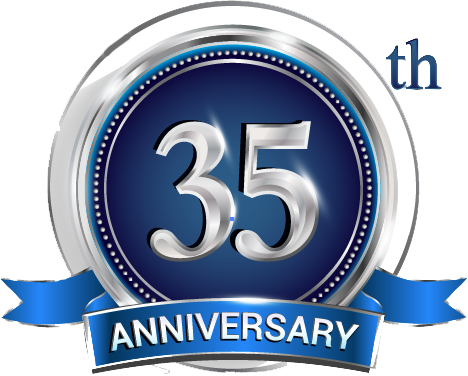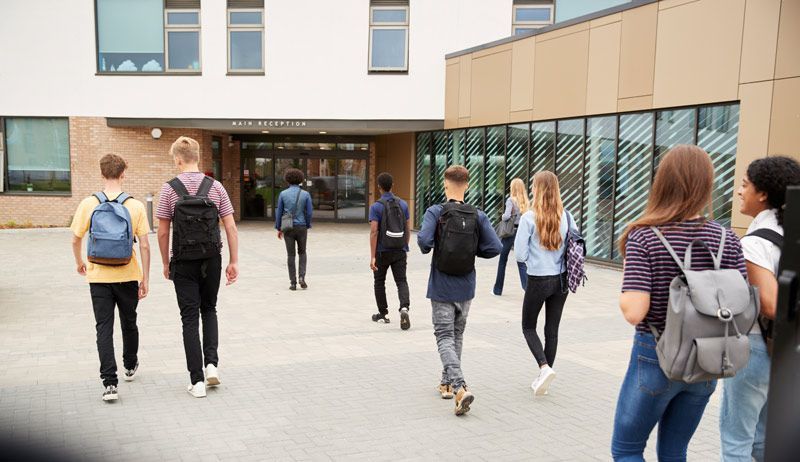High School Students and Parents!
Please Register to be notified of upcoming college fairs and news based on the location, major, and area of study of the college or university you wish to attend.
How to Stand Out at College Fairs: Strategies for Making a Lasting Impression

Tips To Make A Great First Impression with College Recruiters
College fairs are bustling events filled with eager students, enthusiastic college representatives, and a wealth of information. With numerous institutions vying for attention, the challenge for students is not only to gather useful information but also to make a memorable impression. Standing out in a crowded room can significantly influence your college search and admissions process. Here are effective strategies to help you leave a lasting impression with college representatives.
Personal Preparation
Preparation is key to making a strong impression at college fairs. Before attending, take the time to research the colleges that are participating. Familiarize yourself with their programs, campus culture, and admissions processes. By knowing which colleges you’re interested in and having a few questions ready, you demonstrate genuine interest and initiative. This preparedness will not only help you engage in meaningful conversations but also signal to representatives that you are serious about your education.
Another important aspect of personal preparation is your appearance. Dressing appropriately can help set a professional tone for your interactions. While business casual is often recommended, it’s important to feel comfortable, as confidence is paramount. When you look good, you feel good, and this positive attitude can help foster engagement with college representatives.
Crafting Your Elevator Pitch
The college fair is a great opportunity to introduce yourself, and a well-crafted elevator pitch can make a significant impact. An elevator pitch is a brief and compelling introduction that summarizes who you are, what you’re interested in studying, and why you’re considering specific colleges. Aim to keep it concise—ideally around 30 seconds—while highlighting your unique qualities.
For instance, instead of simply stating your name and high school, you might say, “Hi, I’m Alex, a senior at Riverside High School. I’ve always been passionate about environmental science and community service. I’m particularly interested in your sustainability programs because I want to combine my interests in science and public policy to create a positive impact in my community.” This type of introduction not only showcases your interests but also opens the door for further conversation about how that college can meet your academic and personal aspirations.
Engaging in Meaningful Conversations
Once at the fair, approach college representatives with confidence. A friendly smile and a firm handshake can set a welcoming tone. When you engage with representatives, be genuinely curious. Instead of asking generic questions, tailor your inquiries based on your research and personal interests. This approach not only demonstrates your enthusiasm but also leads to more enriching conversations.
For example, if you know that a particular college has a renowned engineering program, you might ask about specific opportunities available to undergraduate students, such as research projects or internships. This shows that you’ve done your homework and are serious about the prospect of attending that institution.
Active listening is crucial during these interactions. Pay close attention to the representative’s responses and be ready to ask follow-up questions. This back-and-forth dialogue establishes rapport and can help solidify your place in their memory. Taking notes during the conversation can also help you remember important details later on.
Utilizing Visual Aids
Bringing along visual aids can further enhance your interactions at a college fair. Items such as a well-organized portfolio, a resume, or even a small packet containing your achievements and interests can help you stand out. These documents not only provide representatives with a snapshot of your accomplishments but also show that you are serious and organized.
In addition, consider creating a simple business card that includes your name, contact information, and a few key accomplishments or interests. Distributing these cards to representatives can provide them with something tangible to remember you by, making it easier for them to follow up if they wish.
Follow-Up After the Fair
One of the most effective ways to stand out is to maintain contact after the college fair. Following up with the representatives you spoke with can solidify the impression you’ve left. Sending a brief thank-you email that expresses your appreciation for their time and insights can be impactful. In your message, refer back to something specific that you discussed to jog their memory and reinforce your connection.
For example, you might say, “Thank you for discussing the innovative research initiatives at your engineering department. I am particularly interested in your summer internships, and I appreciate your guidance on the application process.” This method not only establishes a personal connection but also keeps the lines of communication open for future inquiries.
Embracing Authenticity
Above all, being authentic is vital to making a lasting impression. College representatives can often sense when a student is trying to project a persona that doesn’t genuinely reflect who they are. Instead of trying to fit into a particular mold or say what you think they want to hear, be true to yourself. Share your passions, experiences, and goals honestly. Authenticity fosters trust and creates a sense of connection, making it more likely that the representative will remember you in the future.
Participating in Workshops and Panels
Many college fairs feature workshops, panels, or information sessions alongside the main exhibition. Participating in these events can allow you to interact with multiple representatives and gain deeper insights into various colleges. Engaging in discussions or asking questions during these sessions can also showcase your interest and initiative, making you more memorable.
In a workshop setting, if you ask a question that demonstrates thoughtful consideration of the topic, you’ll likely resonate with representatives, who may remember you for your intellectual curiosity. This can lead to valuable connections and information that could guide your college decision process.
Final Thoughts
College fairs represent a unique opportunity to connect with institutions that may shape your future. By preparing effectively, crafting a compelling self-introduction, engaging in meaningful conversations, utilizing visual aids, following up, and retaining authenticity, you can stand out from the crowd. The key is to approach the fair not just as an event to gather information, but as an opportunity to build relationships that could influence your educational journey.
As you navigate the varied booths and discussions, remember that the goal is not only to impress but also to explore where you might find your best fit. With intentionality and enthusiasm, you can make a lasting impression that serves you well in your college search. Embrace the experience, and let your personality shine through—your future college representatives are eager to meet you!















